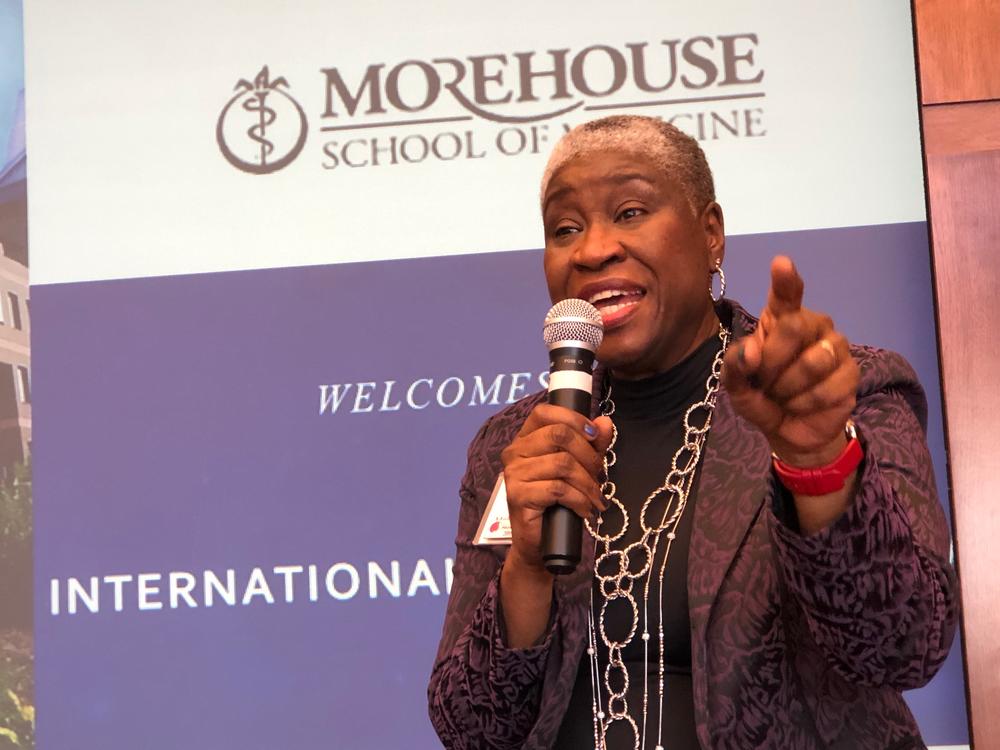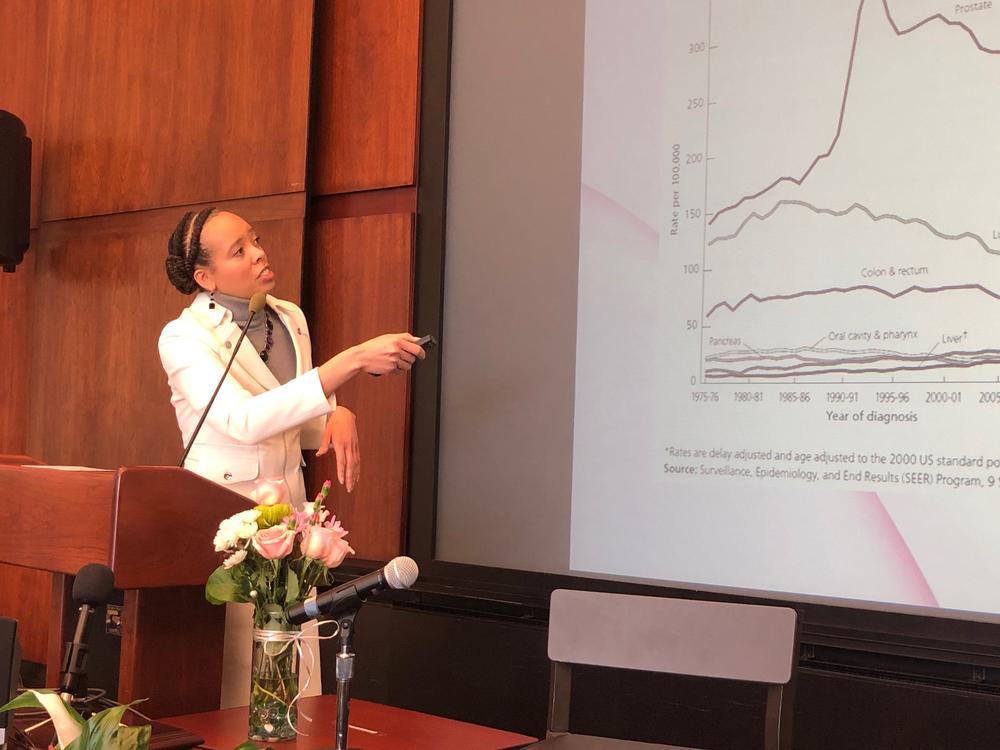Section Branding
Header Content
Bill Passed In Georgia House Would Increase Early Detection Of Breast Cancer
Primary Content
The Georgia House on Monday passed a bill that would help protect women’s health when it comes to early detection of breast cancer.
Health & Human Services Committee Chair Rep. Sharon Cooper (R-Marietta) sponsored HB 62, which requires doctors to notify mammography patients of their breast density.
Proud to help pass HB62 today for Margie's Law which helps women detect breast cancer #MargiesArmy #gapol pic.twitter.com/D5B4hQQHQd— Sharon Cooper (@RepSharonCooper) February 12, 2019
Metro Atlanta has a problem with late-stage detection of breast cancer that disproportionally affects African American women, CEO of Susan G. Komen Greater Atlanta Cati Diamond Stone said. She spoke Thursday at a luncheon hosted by the International Women’s Forum.
Black women in the greater Atlanta area are 30 percent more likely than white women to have breast cancer diagnosed at a later stage and are 45 percent more likely to die of breast cancer, according to The Komen Atlanta 2015 Community Profile.
RELATED: African-American Women At Higher Risk For Breast Cancer Mortality
Morehouse School of Medicine Associate Dean Dr. Erika Brown said another study looked at 43 U.S. cities throughout the United States.
“What is mindboggling to me was out of the cities that (Komen) looked at, Atlanta is No. 1 with respect to mortality of African American women who were diagnosed with breast cancer.”
Brown said access to care, culture and genetics play a role in detecting breast cancer early.
“The more dense the breast tissue is, the more difficult it's going to be to detect a small tumor early just using standard mammography,” Brown said. “And that's why there's a push to use digital mammography.”
But Stone said the bill is just a step in the right direction and not as far as advocates need to go. That’s because of access to health care.
“Now the back to back that (bill) up, though, we have to make sure that every woman in metro Atlanta can then access the additional screenings that they might need that might not otherwise be covered by their insurance policy,” Stone said.
Grady Memorial Hospital offers 3-D digital mammography, regardless of a woman’s ability to pay, which Stone said is key to her work with Susan G. Komen.
“There are several mobile mammography units because we know that transportation is a barrier,” Stone said. “Because if you can't get to Grady to get your screening — even if someone's going to pay for it — that's not very helpful.”
Janice McKenzie-Crayton is a breast cancer survivor who says if Susan G. Komen is going to reduce by 2016 breast cancer deaths by 50 percent, the message must be carried to the African American churches and business leaders.
Doctors often are not the ones who inform women about whether they have dense breast tissue, and 95 percent of women do not know whether their tissue is considered dense.
McKenzie-Crayton said women need to not only be aware but also empowered.
After her team of doctors made no progress “doing things the same way and expecting a different outcome,” she said she wanted new doctors and a new approach, but not all women feel comfortable standing up for themselves.
“And my sweet mom, she said, ‘But you’ll hurt your doctors’ feelings’ and I said, ‘What does that have to do with anything? They’ll be fine.”
McKenzie-Crayton said at that point in her breast cancer journey she asked herself what would become of women who didn’t advocate for themselves.
“If you feel so powerless in your day to day … if you, like my mom, you know you don't want to hurt anybody's feelings … what happens?”
That’s why she said she wants the women of the IWF to spread the word and help Komen reach its goal of reducing breast cancer deaths by half in 2026.



